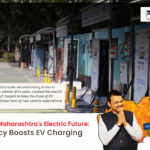
Odisha EV Policy 2.0 Aims for 50% EV Registrations by 2036, Enhances Charging Infrastructure and Offers New Incentives for Adoption
In a major push toward green mobility, the Odisha government has announced its updated EV Policy 2.0, setting an ambitious target: 50% of all new vehicle registrations in the state to be electric by 2036. This long-term vision aligns with Odisha’s Vision 2036 and reflects its growing commitment to sustainable transportation.
From 1% to 50%: Odisha’s EV Growth Story
Odisha has witnessed steady progress in electric vehicle adoption, with EV registrations increasing from 1.16% in 2021 to 8.71% by June 2025, according to state transport data. At a high-level meeting co-chaired by senior officials from the Commerce & Transport and Energy Departments, the state outlined its roadmap to further accelerate this momentum.
Key Highlights of Odisha EV Policy 2.0:
1. Charging Infrastructure Expansion:
Over 550 Public Charging Stations (PCS) are currently operational across the state. To enhance coverage, the State Transport Authority (STA) has floated a Request for Proposal (RFP) to install new charging stations at high-priority urban and semi-urban locations.
2. Incentives for Charge Point Operators (CPOs):
To attract private investment, the policy includes budgetary incentives for empanelled CPOs, distributed on a first-come, first-served basis. This is expected to rapidly boost the availability of charging facilities.
3. Dedicated EV Fund:
The state is planning to establish a Dedicated EV Fund, which could be supported through revenue streams from internal combustion engine (ICE) vehicles. This fund will finance EV-related programs and infrastructure.
4. Combating Range Anxiety:
Odisha aims to tackle range anxiety by rapidly deploying charging stations in underserved areas, making EV use more practical for everyday and intercity travel.
5. Extended Incentives for Buyers:
Buyers of electric two-wheelers, cars, and commercial EVs will benefit from extended and enhanced purchase incentives, helping reduce upfront costs and making EVs more affordable.
6. Comprehensive Ecosystem Strategy:
The policy takes a holistic approach, aiming to stimulate both the supply side (EV manufacturing, infrastructure) and the demand side (consumer and fleet adoption).
7. Support from PM e-DRIVE Scheme:
Odisha has submitted its recommendations to the central government to align with the PM e-DRIVE Scheme, ensuring that the state’s EV users and businesses benefit from upcoming national subsidies and incentives.
Vision 2036: Odisha’s Electric Leap
With these measures, Odisha aims to become a leader in India’s electric mobility space by 2036, promoting both economic development and environmental sustainability. The EV Policy 2.0 reflects a proactive, forward-looking approach, ensuring that the state’s urban and rural populations alike benefit from clean transportation options.










